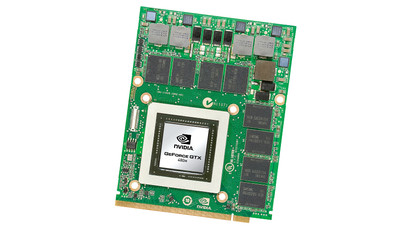How it's possible to play high-end games on ultraportable laptops
Dynamix makes the most from integrated graphics
Lucid though has taken this away from the games themselves, and is creating an ecosystem that it can add to a machine to enable the resolution switching in any game on the fly.
The essential idea is to dynamically adjust the resolution of the 3D scene so that it can run smoother and faster, while still keeping the GUI/HUD of the game rendered in the native resolution. That way the overlay doesn't expand and end up taking over the screen - as it would if you dropped resolution as a whole - and remains clear and crisp and out of the way of the 3D scene.
As Lucid's demonstration showed, dropping the resolution of the actual 3D scene itself this way doesn't harm the image quality too much, and adds a whole heap onto the performance side. You can also, as Lucid is doing with Dynamix, offset much of the image degradation of dropping resolution by using less GPU-intensive post-processing effects to help smooth things out.
The trade-off then is visual clarity. Because the new technology is enabled on the fly, you can immediately see the loss of fidelity - there's a faint smudging visible around the edges, like you'd see anyway running the game in a non-native resolution.

But when you're switching from unplayable-but-sharp to smooth and a little less clear, it's a pretty easy choice. And Lucid hasn't finished optimising yet and is confident it can sharpen things up more in future iterations.
If you want a completely high-end, high-resolution gaming experience then you're still going to need a discrete GPU. But if you just want to play a 3D title with smooth frame rates on your Ultrabook/integrated graphics processor, you're not going to be that bothered about a little loss of clarity.
Destop Dynamix
At the moment Lucid is only looking at this in the mobile sphere, but we also spoke about whether the same could be applied to small form factor machines, the sort of little PCs you stick under your TV for media functionality.
Get daily insight, inspiration and deals in your inbox
Sign up for breaking news, reviews, opinion, top tech deals, and more.
From the sofa the slight smudging is going to be barely visible, and with Valve and its big-screen gaming Steam initiative gaining traction, having a wee PC capable of gaming on your TV is actually quite desirable. This could really open up PC gaming to a whole new section of the PC world.
Now Intel is starting to take notice again and so are the laptop manufacturers. Lucid didn't fully realise just how well-received the software would be and is now being tasked with using it in the first round of Haswell laptops due for release in the middle of next year.
And if the 2x GPU performance of the 4th Generation Core Architecture holds true that could mean 40fps in Crysis 2 on an Ultrabook. Now that's tantalising.